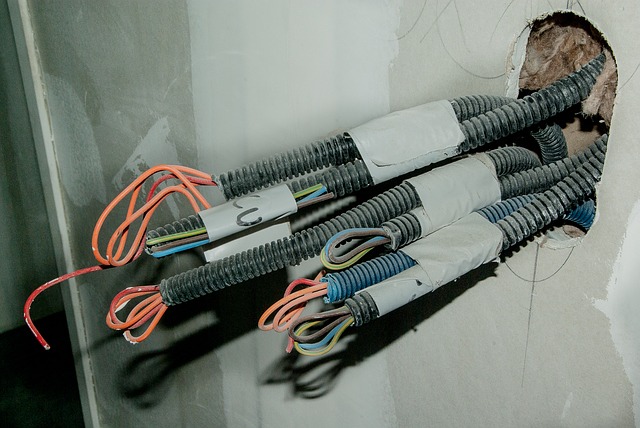Electrical wiring in new homes is often not a problem. However, for older houses, electrical components can be a source of concern, and rewiring should be given consideration.
Electric components, wires, and connections in older homes can deteriorate over time and can become dangerous. Many homes in the Toowoomba region are stunning, older homes which add a lot of character to our beautiful city façade, however with older homes there is also the risk of the home containing electrical wiring that is substandard in that the wires have deteriorated or do not have the capacity to function optimally with today’s electrical needs and demands of your average household.
According to the most recent data, electrical problems are a leading cause of house fires in Australia, representing around 40% of residential fires in several states and territories. That is why awareness and proper upkeep of electrical wiring is absolutely necessary.
Wear and tear can wreak havoc on homes, especially electrical wiring, requiring repairs or replacement. You can tell if your home needs to be rewired by looking out for certain symptoms. If you are hesitant to hire a local Toowoomba electrician to evaluate your property, here are signs to look out for if you require a house rewiring service.
1. Switchboard keeps tripping
Circuit breakers are technically resettable fuses that automatically cut off the electrical circuit when the current exceeds the safety limit. A central circuit breaker panel or switchboard controls all the electrical wiring in a house. They are normally kept in a sheltered cabinet on the exterior of a home or in the basement or laundry.
A typical central panel contains around a dozen circuit breaker switches that connect to different circuits in your house. A breaker that trips repeatedly might be an indication of a significant problem and a sign that your wiring needs to be rewired or replaced.
Your electrical system wears out with time and can no longer manage the amount of electricity needed, this is especially relevant as the modern house hold electricity needs are significantly higher than in previous generations. A fuse that blows or a circuit that trips more frequently than usual is a sign that you need a house rewire and switchboard upgrade.
2. Flickering lights
There are 4 main types of lightbulbs: compact fluorescent, fluorescent tube, incandescent, and halogen for domestic use. Your lights may periodically dim or flicker, indicating that they need to be changed or double-checked for proper screwing.
In most cases, after replacing the bulb the flickering will stop and you won’t need to worry. However, if the flickering gets more consistent, it may indicate a more serious problem and you might need to get an electrician in to explore the cause of the flickering lights.
Lighting circuits have a lower rating than outlet circuits in your home, so they often show the first signs of problems. If you think that your lights are flickering as a result of an electrical problem, contact an electrician to review your home’s electrical wiring.
3. Burning smell
Insulated electrical cables are a critical component of your home’s electrical circuit. For insulation, modern electric wires often utilize PVC plasticized with linear Phthalates. However, due to the high cost of copper, aluminium wiring was popular from the mid-1960s through the late 1970s.
Aluminium wiring in homes has doubled the risk of fire at connecting points according to safety experts. Wiring deteriorates after a long time due to wear, pests, and rodents chewing on the insulation.
If you routinely smell burning in your home but are unable to pinpoint the cause. There is a chance that there is an electrical failure nearby. If the burning odour persists and worsens, switch off the electricity at the circuit breaker and consult an electrician immediately.
4. Power points failing
A faulty connection can cause a switch or outlet to turn brown or black. Any discoloration should not be ignored because it could indicate a more serious condition. A loose connection has the ability to generate small arcs of electricity, which can ignite a small fire.
Exposed wires in outlets can be incredibly risky if accidentally touched or near combustible material. You should contact a licensed electrician immediately to fix or replace the outlet.
5. Your home is 50yrs +
Australian building requirements have evolved throughout time, thus newer structures are often more fire-resistant than older ones. If your home is around 50years old and you are unsure whether the switches, sockets, cables and fuse box have been replaced, you should have an electrician inspect your entire circuit.
Older homes also have fewer electrical plugs and older safety equipment like circuit breakers. If you own your home, it is suggested that you get your electrical installation checked every ten years.
Help Prevent House Fires
You can all do your part to reduce the threat of electrical fires in your house and keep your family secure. Check electrical leads for malfunctions and damage on a regular basis. Power points and circuit breaker switches should not be overloaded.
Turn off any electrical equipment that you don’t need before getting to bed. If your home has a working smoke alarm, the probability of a fatality in a fire is cut in half. It is a requirement in Australia that every level of your house have at least one functioning smoke alarm. This article looks more in depth at the QLD smoke alarm installation requirement changes.



